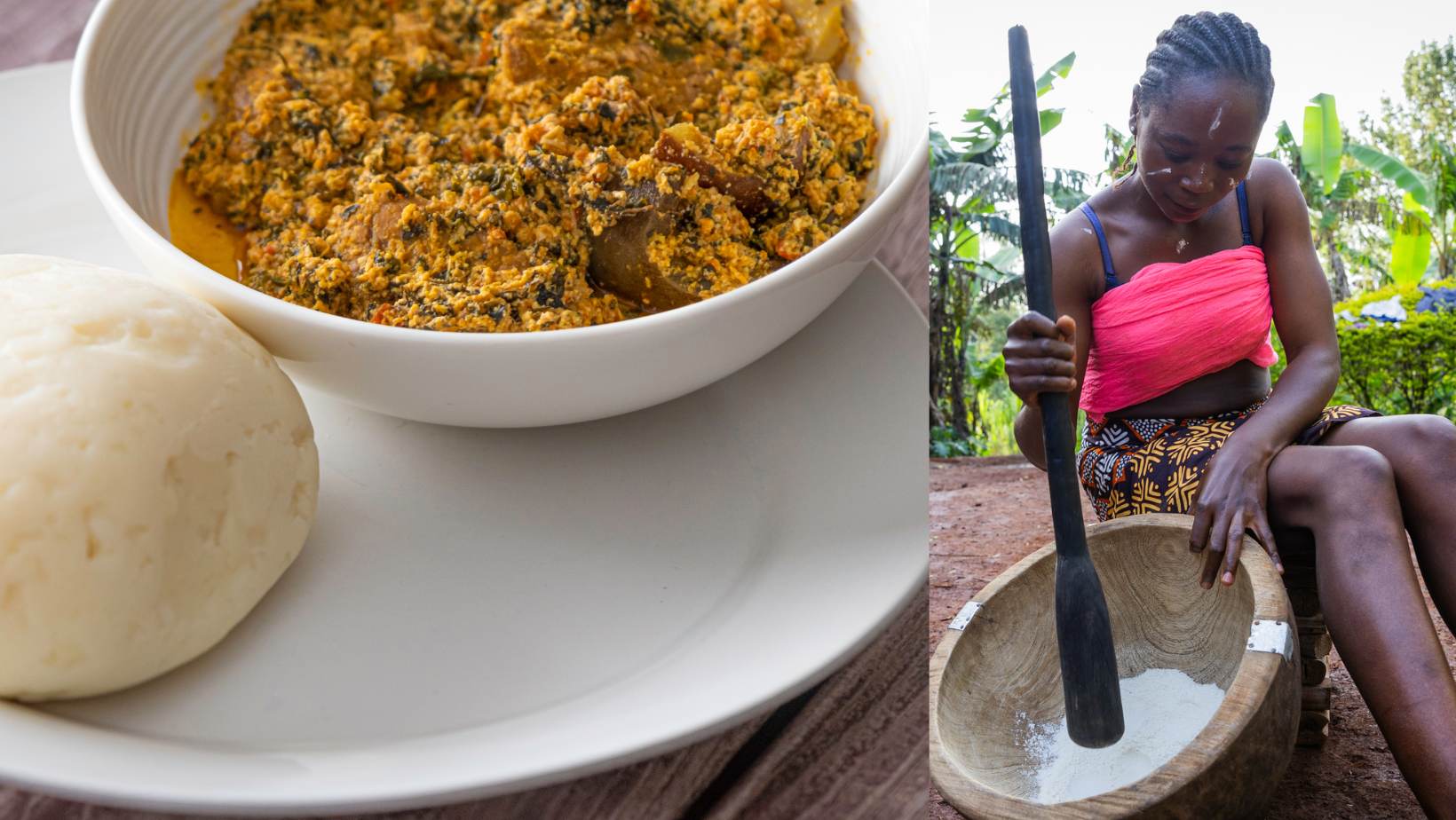Every August 11, food enthusiasts and cultural aficionados come together to celebrate National Fufu Day, a holiday dedicated to one of West Africa’s most iconic and beloved dishes. This observance not only honors a delicious culinary tradition but also serves as a testament to the rich cultural heritage of West Africa and its diaspora.
The Origins and Significance of Fufu
Fufu, a starchy side dish with a dough-like consistency, is believed to have originated in Ghana. However, its popularity has spread throughout West Africa, becoming a staple in countries such as Nigeria, Cameroon, Togo, and Benin. During the colonial period, fufu made its way across the Atlantic, finding a home in Caribbean cuisines as well.
Traditionally made from starchy root vegetables like yams or cassava, fufu is more than just food—it’s a cultural touchstone. The dish is deeply intertwined with West African agricultural practices, social customs, and culinary traditions. The timing of National Fufu Day in August is particularly significant as it coincides with West Africa’s traditional yam festival, which marks the harvest season.
The Art of Making and Eating Fufu
The preparation of fufu is an art form in itself. The traditional method involves boiling starchy vegetables (most commonly yams) and then pounding them in a large wooden mortar with a pestle until they form a smooth, sticky dough. This process, often a communal activity, requires skill and rhythm.
Eating fufu is equally ritualistic. It’s typically served with savory soups or stews and is eaten with the hands. A small ball of fufu is pinched off, rolled, and then dipped into the accompanying sauce. The proper technique involves creating a small indent in the fufu ball with your thumb to scoop up the perfect amount of soup or stew.
The Global Journey of Fufu
As West African diaspora communities have grown around the world, fufu has found its way onto global menus. This expansion has led to various adaptations of the dish, with different regions using local starches like plantains, semolina, or even instant mixes to recreate the beloved staple.
The growing international recognition of fufu is exemplified by the publication of “The Art of Fufu” by Grubido in 2021. This book serves as a comprehensive guide to the dish, its cultural significance, and the traditions surrounding it, helping to introduce fufu to a wider audience.
Celebrating National Fufu Day
There are numerous ways to participate in this culinary celebration:
1. Try Making Fufu at Home
For the adventurous home cook, attempting to make fufu from scratch can be a rewarding experience. While the traditional pounding method requires special equipment and technique, there are modern adaptations using food processors or even instant fufu flour.
2. Visit a West African or Caribbean Restaurant
Many cities now boast restaurants specializing in West African or Caribbean cuisine. National Fufu Day is the perfect excuse to visit one and experience fufu in its traditional setting, paired with flavorful soups and stews.
3. Learn About Fufu’s Cultural Significance
Take time to read about the history of fufu and its importance in West African cultures. Understanding the context of the dish can deepen your appreciation for it.
4. Host a Fufu Tasting Party
Gather friends to try different variations of fufu and accompanying soups. This can be a fun way to explore the diversity of West African cuisines.
5. Share on Social Media
Spread awareness about National Fufu Day by sharing your fufu experiences on social media platforms using hashtags like #NationalFufuDay or #FufuLove.
The Nutritional Value of Fufu
Beyond its cultural significance, fufu offers several nutritional benefits:
- High in complex carbohydrates, providing sustained energy
- Good source of dietary fiber, aiding digestion
- Contains essential minerals like potassium
- Low in fat and cholesterol
These nutritional attributes have contributed to fufu’s enduring popularity as a staple food.
Looking to the Future
As global interest in diverse cuisines continues to grow, fufu is poised to gain even more recognition on the international stage. National Fufu Day plays a crucial role in this process, introducing more people to this beloved West African dish and the rich cultural tapestry it represents.
Conclusion
National Fufu Day is more than just a celebration of a dish—it’s a recognition of cultural heritage, culinary artistry, and the power of food to connect people across continents. Whether you’re a longtime fufu enthusiast or trying it for the first time, August 11 offers a perfect opportunity to explore this West African staple and the traditions surrounding it.
So this National Fufu Day, why not step out of your culinary comfort zone? Roll up your sleeves (literally—remember, fufu is eaten with your hands!), and dive into the rich, comforting world of fufu. You might just discover a new favorite food and gain a deeper appreciation for the diverse culinary traditions that make our world so flavorful.
